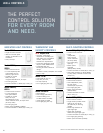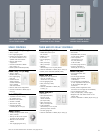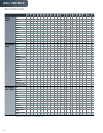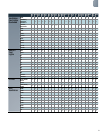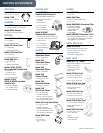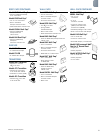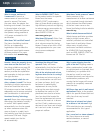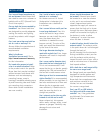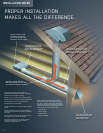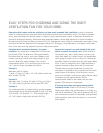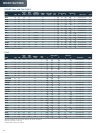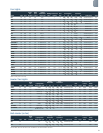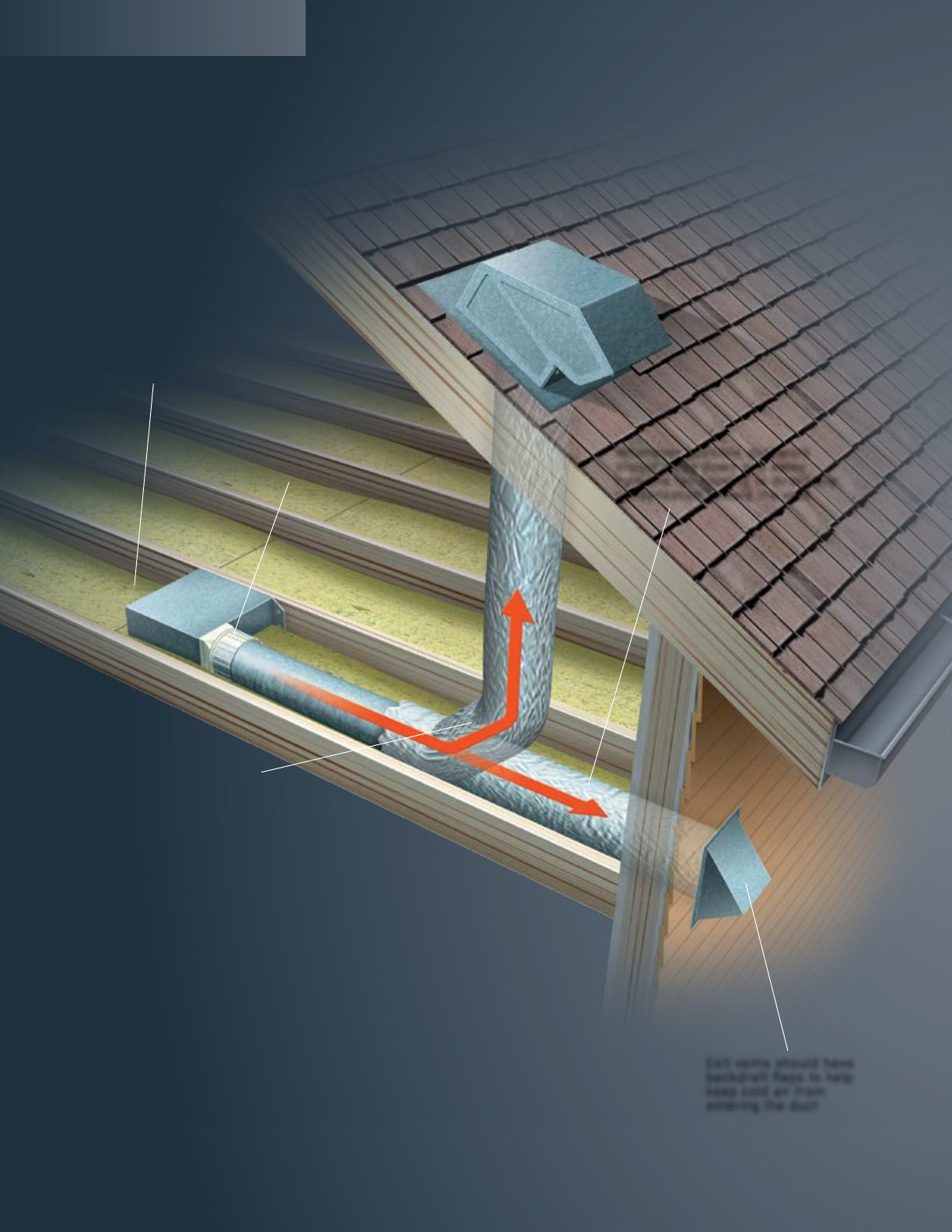
Tape or caulk around
the seam where the
fan housing meets the
sheetrock on the ceiling
If possible, use smooth,
rigid ductwork as large
as the exit opening on the
body of the fan housing
Whether rigid or flexduct,
the turning radius for the duct
should be as large as possible
Whenever possible, ductwork
should slope down and away
from the fan housing to direct any
condensation toward the vent
Exit vents should have
backdraft flaps to help
keep cold air from
entering the duct
PROPER INSTALLATION
MAKES ALL THE DIFFERENCE.
INSTALLATION NOTES
Pre-installed screws, keyhole slots and
alignment tabs facilitate installation, taking the
guesswork out of proper mounting.
Elbows, turns, long ducts and ductwork smaller
than the fan’s exit outlet will reduce performance.
Use wide aluminum foil or duct tape to join
smooth metal ductwork seams.
Do not let flexible ductwork sag as this impedes
airflow.
During installation, orient the bath fan outlet in
the direction of the home’s exit point to minimize
duct turns.
Before adding an elbow or bend,allow 24" to 36"
of straight run from the fan outlet point.
Duct-wrap insulation (R-5 or above) will help
minimize condensation in cold climates,
especially on long duct runs.
Quick guideline: For bathrooms up to 100
square feet, the HVI recommends ventilation
of at least 1 CFM per square foot (about eight
air changes per hour). For bathrooms over 100
square feet, add up the needs of each fixture
to determine the total ventilation rate:
• Toilet 50 CFM
• Shower 50 CFM
• Bathtub 50 CFM
• Jetted tub 100 CFM
58



